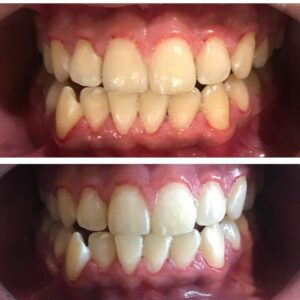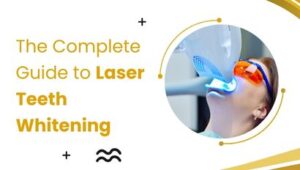Ramadan is a holy month in which Muslims fast. The long fasting hours from ‘Suhoor’ to ‘Iftaar’ require special attention, and the oral health is the most neglected of all. Dehydration is caused by not eating or drinking for a long period of time, which leads to the growth of germs in the mouth, which creates foul breath.
Due to a fear of breaking the fast, a large number of Muslims who fast during this holy season also avoid dental care. Is it true that going to the dentist will cause you to break your fast? Or Is it safe to brush your teeth during a fast?
So, here’s a quick Q&A blog on how to keep your mouth healthy during Ramadan.
Does Brushing Teeth Break Fast During Ramadan?
It’s similar to Wudu in that you sniff water up your nose and then rinse your mouth with water. The only stipulation is that you do not purposefully swallow the toothpaste or water. If you, do it on purpose to gain gratification, your fast will be shattered. If it happens by chance and the person had no intention of swallowing, the fast remains legitimate.
Why is Ramadan a good time to give up smoking?
Smokers are more likely to develop gum disease due to the dryness and lower salivary flow rate caused by smoke particles in the mouth.
Muslims who smoke abstain from smoking throughout Ramadan, but most of them smoke after iftar, which makes their breath worse.
In Ramadan, what foods should be avoided for dental hygiene?
• During Ramadan, carbohydrate-rich, sweet, sticky, or acidic foods are taken in greater quantities. Sugar and starch damage the tooth’s protective enamel, causing tooth decay. Sticky foods like toffees and cream biscuits dissolve slowly, providing an ideal environment for bacteria and acids to grow.
• When onions, garlic, and some spices are eaten, they cause bad breath. When bacteria digest meat or fish, larger amounts of odorous gases are generated. Before heading to the mosque, make sure there are no bits of meat stuck between your teeth and that the garlic smell is gone.
TIP FROM DENTORAL STUDIO: Make your meals as healthy as possible. Increase your intake of fruits, vegetables, proteins, and nuts, since the antioxidants in these foods can help protect your teeth and gums by strengthening your body’s capacity to fight germs and inflammation. Keep up to date yourself by following Dentoral’s Facebook page.
In Ramadan, what is the link between the usage of miswak and oral hygiene?
Apart from its medicinal benefits, the miswak is also highly recommended in Islam. It includes the following:
1) antiseptics made from natural ingredients that eliminate harmful microorganisms in the mouth
2) tannic acids, which help to prevent gum disease
3) fragrant oils that make you salivate more
Dentoral Studio helps you to maintain Oral Health
Oral health is not permissible and invalidate the fast. If you face any dental issuse during the holy month of Ramadan, you can visit Dentoral Studio. We make sure to maintain your oral health throughout the holy month so you can fully enjoy in ‘Eid’ celebrations.



